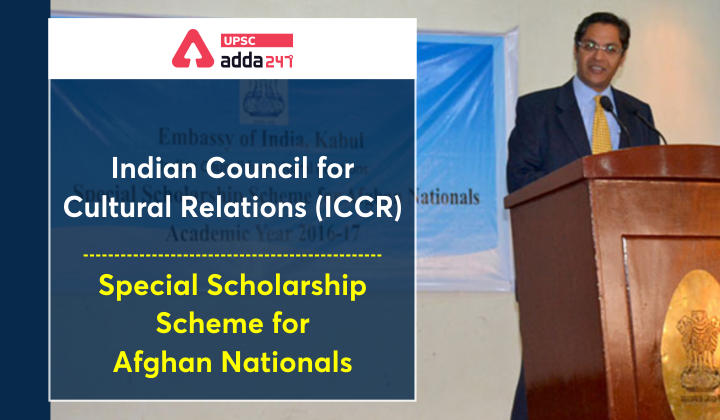Table of Contents
Indian Council for Cultural Relations (ICCR)- Relevance for UPSC Exam
- GS Paper 2: International Relations- India and its neighborhood relations.
Indian Council for Cultural Relations (ICCR)- Context
- Recently graduated Afghanistan students are facing a dilemma as the Indian Council for Cultural Relations scholarships, of which these students were beneficiaries, have come to an end.
- This end of scholarship has given rise to financial concerns for these students.
- In the present Afghan crisis, they won’t be able to stay back in India as their student visas do not permit them to work.
Indian Council for Cultural Relations (ICCR)- Special Scholarship Scheme for Afghan Nationals
- ICCR’s special scholarship scheme for Afghan nationals provides for stipends of up to ₹25,000, and house rent allowance of up to ₹6,500 per student per month,
- The ICCR’s special scholarship is provided to those pursuing undergraduate degrees and are post-doctoral fellows.
Indian Council for Cultural Relations (ICCR)- Key Points
- About: The Indian Council for Cultural Relations (ICCR) is an autonomous organization of the Government of India, involved in India’s external cultural relations, through cultural exchange with other countries and their peoples.
- It was founded in 1950 by Maulana Abul Kalam Azad, independent India’s first Education Minister.
- It works to strengthen cultural relations and promote mutual understandings.
- Key Objectives: Indian Council for Cultural Relations (ICCR)’s key objectives are-
- To actively participate in the formulation and implementation of policies and programs pertaining to India’s external cultural relations;
- To foster and strengthen cultural relations and mutual understanding between India and other countries;
- To promote cultural exchanges with other countries and people, and to develop relations with nations.



 TSPSC Group 1 Question Paper 2024, Downl...
TSPSC Group 1 Question Paper 2024, Downl...
 TSPSC Group 1 Answer key 2024 Out, Downl...
TSPSC Group 1 Answer key 2024 Out, Downl...
 UPSC Prelims 2024 Question Paper, Downlo...
UPSC Prelims 2024 Question Paper, Downlo...




